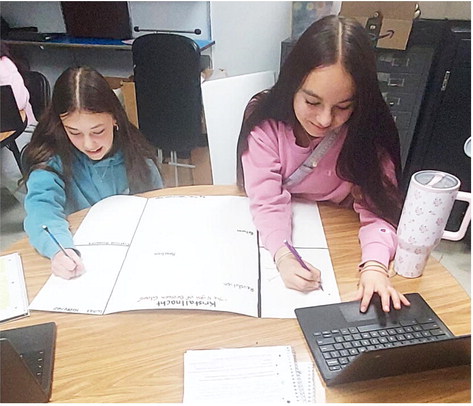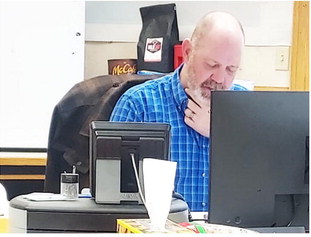Tribal Nations Seek To Join Lawsuit Against Restricted Voter Registration
A bill restricting when Montanans can register to vote — including eliminating most of Election Day — would disproportionately affect Indigenous peoples living in rural parts of the state, according to new court documents filed on Tuesday.
The Confederated Salish and Kootenai Tribes, the Blackfeet Nation, the Fort Belknap Indian Community, and the Northern Cheyenne Tribe, as well as tribal advocacy nonprofit Western Native Voice, filed to join the lawsuit brought last month by the Montana Federation of Public Employees before Lewis and Clark County District Court, which challenged the constitutionality of Senate Bill 490 and another bill that strengthened voter ID laws.
The new law, sponsored by state Sen. Mike Cuffe, R-Eureka, tightened the deadline for voters to register to vote to noon on Election Day and eliminates registration on the Monday before an election, but opens it on the prior Saturday, which previously was not a day voters could register.
In the motion to intervene, the Native American coalition said the suit marks the third time in six years that Western Native Voice and some of Montana’s sovereign tribal nations have gone to the courts to challenge the “Legislature’s continued insistence on making it more difficult for Native Americans in Montana to vote. ”
“Each time we’ve stood up in court for our right to vote, we do so not for ourselves, but for the generations who came before us and those who will come after,” Fort Belknap President Jeffrey Stiffarm said in a statement. “Our ancestors fought for recognition, sovereignty, and dignity. It’s racism to try and enact the same laws over again. We will not let the state drag us backwards or silence our people. Not now. Not ever.”
Under previous Montana law, anyone in line at the ballot box by 8 p.m. on Election Day could register to vote, which has occasionally led to long lines at voting locations.
Last November, some voters waited in line at the Gallatin County Courthouse until the early hours of the morning in order to register and cast their ballot.
Cuffe, in an opinion piece published by Lee Newspapers, cited that example — when votes were cast as late as 4 a.m. — as a reason for passing his bill.
“The intent is to smooth out the process and avoid votes being cast many hours beyond the intended closing of the polls at 8 p.m.,” Cuffe wrote.
But a 2024 decision from the Montana Supreme Court struck down a 2021 law that had sought to eliminate Election Day voter registration, which the initial legal complaint from MFPE cited and the motion to intervene focused on as well.
“Past efforts to limit Election Day voter registration impermissibly interfered with the right to vote,” according to court documents filed by the tribal advocates. “On notice from its own legal analysis that the planned legislation likely did not conform with the Montana Constitution, the Legislature passed Senate Bill 490, which does away with eight critical hours of voter registration on Election Day.”
The Native American groups joined the lawsuit because restricting Election Day voter registration disproportionately affects Native American Voters. Citing the Supreme Court opinion, their filing states that Native voters “‘rely on Election Day registration because of numerous issues they face in voting, including lack of access to mail, transportation, and the long distances to county seats where they can register.’” Indigenous people in rural tribal communities “rely heavily on Election Day registration, but also overwhelmingly register to vote after noon — precisely the window SB 490 cuts out,” according to the press release.
“We are not asking for special treatment — we’re demanding equal treatment,” Northern Cheyenne President Gene Small said. “When you live miles and miles from the nearest polling place, and the roads are snowed in all morning, taking away eight hours of Election Day registration creates real-life problems for everyday voters. It’s anti-democratic.”
The tribal nations and Western Native Voice are represented by the ACLU of Montana, the American Civil Liberties Union, and the Native American Rights Fund.

